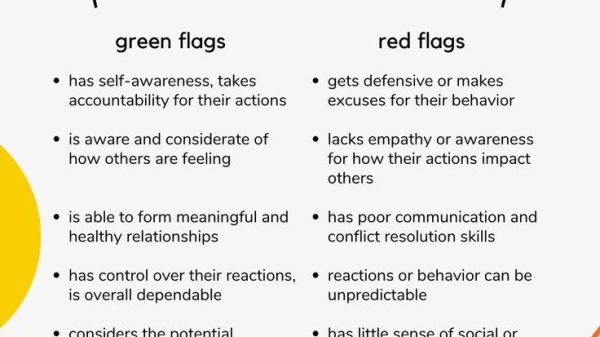In the intricate dance of new relationships, where excitement meets uncertainty, building emotional trust can often feel like navigating an uncharted territory. It’s the silent promise that underpins every meaningful connection, yet its delicate nature requires careful nurturing. Emotional trust is the invisible thread that binds hearts together, creating a safe haven where vulnerability is not feared but embraced. In this exploration, we delve into the art of cultivating this essential element, offering insights and strategies to help lay a foundation of trust that can weather the storms and celebrate the sunshine of any new relationship. Whether you’re embarking on a fresh romantic journey, forming a new friendship, or stepping into a professional alliance, understanding how to build emotional trust is key to unlocking deeper, more fulfilling connections.
Understanding Emotional Trust as the Foundation of New Relationships
In the delicate dance of forming new relationships, emotional trust emerges as the invisible thread weaving two souls together. Emotional trust is about creating a safe space where both individuals feel understood and valued. To cultivate this essential foundation, begin by embracing vulnerability. Share your thoughts and feelings openly, even when they seem trivial or overwhelming. In doing so, you invite your partner to reciprocate, fostering a mutual understanding that forms the bedrock of trust.
- Listen Actively: Pay attention to not just the words, but the emotions behind them.
- Be Consistent: Consistency in actions and words helps to build reliability and trust.
- Show Empathy: Acknowledge and validate your partner’s feelings, even if you don’t fully understand them.
- Respect Boundaries: Recognize and honor personal boundaries, showing that you value the other person’s autonomy.
By focusing on these practices, emotional trust naturally flourishes, providing a sturdy foundation upon which a healthy, fulfilling relationship can grow.

Cultivating Open Communication to Foster Trust
Establishing a foundation of open communication is essential for nurturing emotional trust in any new relationship. This involves not just speaking openly but also creating a safe space where both parties feel comfortable sharing their thoughts and feelings without fear of judgment or reprisal. Transparency is key; it encourages honesty and shows that you are willing to be vulnerable, which can inspire the same in others.
- Listen Actively: Engage with your partner by giving them your full attention. Avoid interrupting and instead, show empathy and understanding.
- Be Honest: Share your thoughts and feelings openly, even if they are difficult to express. Honesty fosters a deeper connection.
- Express Appreciation: Acknowledge and value the efforts your partner makes. A simple “thank you” can go a long way in strengthening trust.
- Set Boundaries: Discuss and respect each other’s limits. This creates a secure environment where trust can flourish.

Navigating Vulnerability: Building Trust Through Shared Experiences
In the journey of forming new connections, embracing vulnerability can be a powerful tool. When we share our experiences, we invite others to see us in our truest form, opening the door to genuine understanding and empathy. Shared experiences are the bridges that connect our individual worlds, fostering an environment where emotional trust can thrive. Whether it’s recounting personal stories, discussing challenges, or celebrating victories, these moments of openness help lay the foundation for trust.
Consider these elements when building trust through shared experiences:
- Active Listening: Give your full attention and respond thoughtfully, showing that you value their perspective.
- Authenticity: Be true to yourself, sharing honestly without fear of judgment.
- Empathy: Strive to understand and appreciate their feelings and experiences.
By prioritizing these aspects, you create a safe space where both parties feel respected and valued, allowing trust to naturally flourish.

Establishing Consistency and Reliability in Your Interactions
Building emotional trust is fundamentally about establishing consistency and reliability in your interactions. When you consistently show up as a dependable partner, friend, or colleague, you create a foundation of trust that can weather the storms of misunderstanding or conflict. To foster this, ensure that your actions align with your words. If you promise to be there for someone, make sure you follow through. It’s the little things, like responding to messages promptly or remembering important dates, that reinforce your reliability.
- Be Present: Make a conscious effort to be mentally and emotionally available during conversations.
- Communicate Clearly: Articulate your thoughts and feelings honestly, avoiding misunderstandings.
- Follow Through: Commit to your promises, no matter how small they seem.
- Listen Actively: Show genuine interest in the other person’s perspective and emotions.
Consistency is not just about the big gestures; it’s about the daily interactions that show you are trustworthy. Over time, these consistent behaviors build a strong, reliable bond, creating a safe space where both parties feel valued and understood. In new relationships, this reliability becomes the cornerstone for deeper emotional connections.








